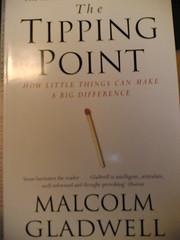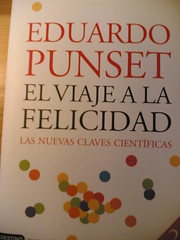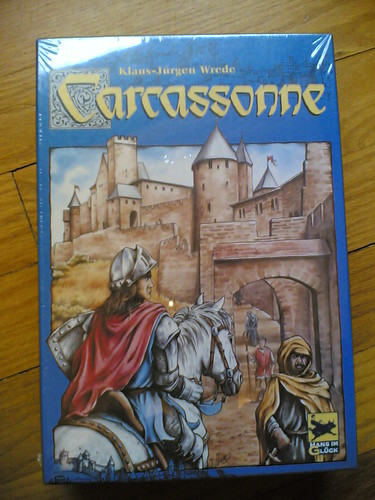Ver: 50 libros.
- Enero
- The Tipping Point de Malcolm Gladwell
- Introducción a la Grecia antigua de F. J. Gómez Espelosín
- Just a Geek. Unflinchingly honest tales of the search for life, love, and fulfillment beyond the Starship Enterprise de Wil Wheaton
- El oficio de oír llover de Javier Marías
- On SF de Thomas M. Disch
- Camouflage de Joe Haldeman
- Strangers de Taichi Tamada
- Mobius Dick de Andrew Crumey
- Introducción a la cultura japonesa de Hisayasu Nakagawa
- White Light de Rudy Rucker
- Crimes Against Logic de Jamie Whyte
- Buffy the Vampire Slayer de Anne Billson
- Vaya país. Cómo nos ven los corresponsales de prensa extranjera de Werner Herzog (coord.)
- The End of Faith de Sam Harris
- El extranjero de Albert Camus
- The Victorian Internet de Tom Standage
- Slayer: the last days of Sunnydale de Keith Topping
- Everything bad is good for you de Steven Johnson
- Dictionary of fashionable nonsense de Ophelia Benson y Jeremy Stangroom
- Viajes con Heródoto de Ryszard Kapuściński
- Relatos japoneses de misterio e imaginación de Edogawa Rampo
- Creation de Gore Vidal
- Einstein’s refrigerator. Tales of the hot and cold de Gino Segrè
- How Proust can change your life de Alain de Botton
- Los ovnis ¡Vaya timo! de Ricardo Campo
- The pig that wants to be eaten de Julian Baggini
- The Philosopher at the End of the Universe. Philosophy Explained Through Science Fiction Films de Mark Rowlands
- The Philosophy Gym. 25 Short Adventures in Thinking de Stephen Law
- Everything I know I learned from tv. Philosophy for the unrepeantant couch potato de Mark Rowlands
- La llegada del cometa de Tove Jansson
- Being Good. A short introduction to ethics de Simon Blackburn
- The Fourth Bear de Jasper Fforde
- Ansiedad por el estatus de Alain de Botton
- El espejo roto de Pierre Vidal-Naquet
- Parménides de César Aira
- Joss Whedon: The Genius Behind Buffy de Candace Havens
- Far from the Madding Gerund and Other Dispatches from Language Log de Mark Liberman y Geoffrey K. Pullum
- Abducted: How People Come to Believe They Were Kidnapped by Aliens de Susan A Clancy
- De la TV a Hollywood: Un repaso a las películas basadas en series de Concepción Cascajosa Virino
- Letter to a Christian Nation de Sam Harris
- The Philosophy Files de Stephen Law
- The God Delusion de Richard Dawkins
- Freakonomics: A Rogue Economist Explores the Hidden Side of Everything de Steven D. Levitt y Stephen J. Dubner
- Making Sense: Philosophy behind the headlines de Julian Baggini
- What Good Are the Arts? de John Carey
- La revolución de los blogs de José Luis Orihuela
- Seis problemas para don Isidro Parodi de Jorge Luis Borges y Adolfo Bioy Casares
- La lección del maestro de Norman Thomas di Giovanni
- Measuring the World de Daniel Kehlmann
- Juglar de Rafael Marín
Febrero
Marzo
Abril
Mayo
Junio
Julio
Agosto
Septiembre
Octubre
Noviembre
ju







